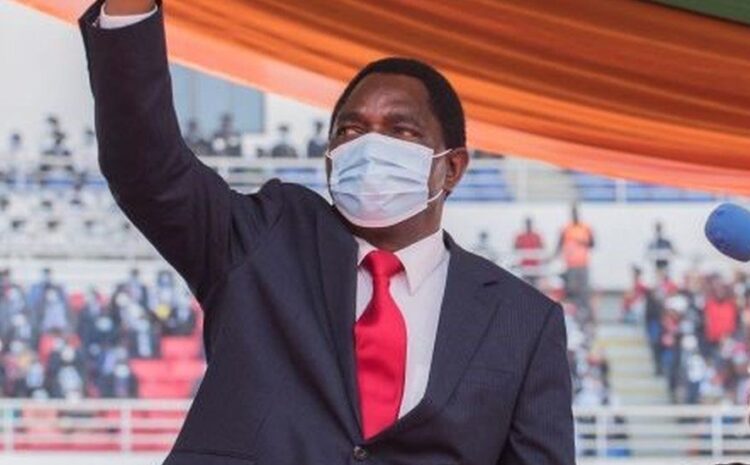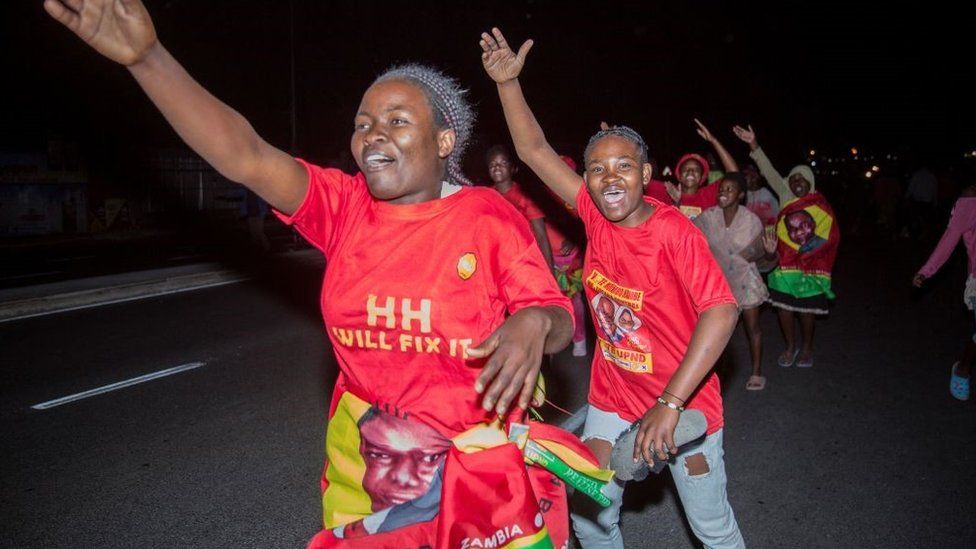
IMAGE SOURCE AFP image caption Hakainde Hichilema failed in five previous attempts to become president
“People are still trying to make last-minute movements of funds, which are unauthorised, which are not theirs,” President Hakainde Hichilema said.
He defeated his rival Edgar Lungu in presidential elections last month.
Mr Hichelema did not name any officials. Mr Lungu has previously denied all wrongdoing.
The BBC has approached his party for comment.
Mr Lungu governed the copper-rich nation since 2015. He was widely praised for the smooth transition of power to Mr Hichilema, who won the presidency after five failed attempts.
Treasury ’empty’
Mr Hichilema won the election on a promise to tackle corruption, and to end the financial and economic crisis that has seen Zambia’s debt ballooning.
In the BBC interview, the new president described the treasury as “literally empty”.
He added that the “hole is much bigger than we expected” and the debt situation had not been “fully disclosed” by the former government.
“There’s a lot of damage, unfortunately,” Mr Hichilema said.
“I don’t want to pre-empt things but what we are picking [up] is horrifying,” the president said.
 IMAGE SOURCE AFP
IMAGE SOURCE AFPMr Hichilema has appointed economist and former International Monetary Fund (IMF) adviser Situmbeko Musokotwane as finance minister.
“Unless we do something to the budget, then the budget will be mainly for paying salaries and also servicing debt,” Mr Musokotwane was quoted by Reuters news agency as saying soon after his appointment.
Zambia owed foreign lenders an estimated $12bn (£8.6bn), previous reports said.
It spends at least 30% of its revenue on interest payments, according to credit ratings firm S&P Global.
Last year, Zambia missed an interest repayment, making it the first African country to default on a loan during the pandemic.
